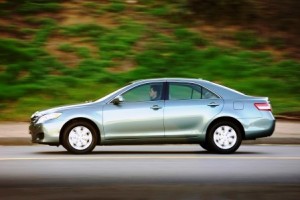Mile per mile, you’re far more likely to die simply going for a walk than driving a recalled Toyota model that hasn’t been repaired, a key witness testified during hearings in Washington.
And the likelihood is even lower if the vehicle has been repaired, said Prof. Paul Fischbeck, of Carnegie Mellon University, during a hearing by the National Academy of Sciences.
The NAS is one of the groups that has been charged by the U.S. Department of Transportation (DOT) with investigating the sudden acceleration crisis that began when Toyota announced the first of two recalls one year ago this month.
Since then, the maker says, it has made repairs to 3.7 million of the 6 million vehicles covered by those two recalls – one to deal with the possibility loose carpets and mats could jam the throttle pedal, the other because of sticky accelerators – about 62%. That’s roughly in line with what most manufacturers experience when they issue a safety recall, though the maker has expressed its goal of repairing every possible vehicle involved in the sudden acceleration problem.
The NAS committee is in the midst of hearings that will continue through the week, with other expert witnesses, such as the Center for Auto Safety’s Clarence Ditlow, on the docket. A final report is due out next June. But preliminary findings by the NAS and the DOT have downplayed the degree of a problem that has generated massive news coverage and significantly tarnished the once unassailable Toyota brand name.
Preliminary findings, for example, based on the study of so-called black box onboard data recorders have so far found no signs of the mysterious electronic gremlins some critics claim could cause Toyota products to race out of control.
Meanwhile, the testimony by Fischbeck, a professor of science, engineering and public policy at Carnegie Mellon, suggests that the risk of death due to a sudden acceleration incident is relatively minor. The problem, he estimated, will cause 1.05 deaths for every 100 million miles driven. That’s for vehicles that have gone through the necessary repairs. For those that haven’t been fixed, the figure rises to 1.07 deaths per 100 million miles.
That works out to an estimated 5 deaths annually in the U.S. – or about 2 in 1 million for someone driving a Toyota vehicle linked to sudden acceleration.
To put that into perspective, Fischbeck testified that, “If you canoe for half a mile you incur 2-in-a-million risk of dying.” That’s about the same for walking 10 miles. In fact, your risk of dying while out for a walk is 19 times higher, he concluded, than driving a Toyota down the same road.

